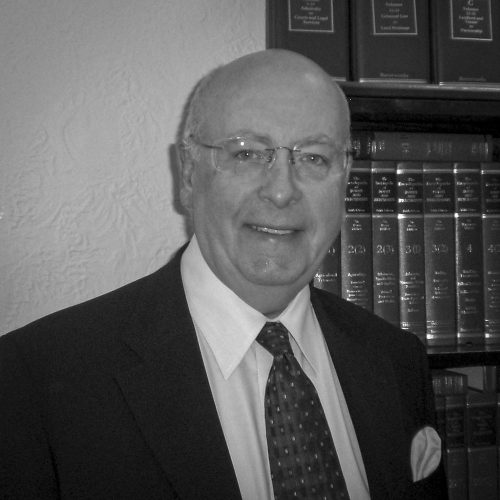Professional Will Writing Service
Writing a Will is the only way of being sure that your wishes are carried out when you die, no matter how close you are to your family. Our Will Writing Solicitors will ensure your Will contains every detail needed to deal with the distribution of your estate.
Having a well-written Will is essential in avoiding the law having to intervene. Your Will sets out what you would want to happen to your possessions, money and property (your ‘estate’) when you pass away. If you die without a Will, the law decides what happens to your estate, with what are known as the rules of intestacy. These rules are fixed and may not be what you would have wanted. For peace of mind, you are urged to make a Will as soon as possible.
The importance of making a Will cannot be overstressed. Each Will is tailor-made, considering your personal circumstances, possible tax implications, and inheritance tax.
At the very least, writing a Will makes a difficult time for your family much easier and less stressful. They will know exactly what your final wishes are and where to find them. Our dedicated Will Writing Solicitors can advise you on the best course of action when writing your Will.
How our Will Writing Solicitors in Sheffield and Barnsley can help
We support people across Sheffield, Barnsley, and the wider South Yorkshire area to write their Will and get their final affairs in order. We also advise on a wide range of other lifetime planning matters. Our expertise includes:
- Single and mirror Wills
- Property & asset protection Wills
- Business Owner’s Wills
- Lifetime trusts
- Long-term care issues
- Resolving estate matters after death
- Free and secure storage
- Powers of attorney
- Court of Protection applications
Pennine Law are experts in writing Wills, particularly in complex scenarios such as; sharing a property with someone who is not your husband, wife or partner; having children from a previous relationship; being beneficiary of a trust; or owning part or all of a business.
Our team of Will Writing Solicitors are here to help you make the right decision for your needs.
Get in touch with our Will Writing Solicitors in Sheffield and Barnsley
Contact our friendly, expert Will Writing Solicitors in Sheffield and Barnsley for all the help you need to make your Will.
We have local offices across Sheffield in Penistone, Attercliffe, Gleadless and Hillsborough, plus offices in Barnsley town centre and Hoyland.
Give us a call at your nearest branch or fill in our online enquiry form and we’ll give you a call back as soon as possible.
When should I write my Will?
Now! It really is as simple as that. If you’re of sound mind, over the age of 18; you own your own property; are not married and have assets; you have children; or you want to see your friends benefit from your estate then you should write your Will.
If you believe that you do not need to bother with a Will until you are older, and it becomes more relevant to dealing with your assets made during your life, then you are wrong.
Age is irrelevant. If you have assets in your 20s, 30s or 40s, then you really should make a Will to determine who is to benefit should you pass away.
If you die without a Will, then it is the law that decides who benefits from your estate and you could be surprised who will miss out as a result.
Can I write my own Will, or do I need a Solicitor?
You can make your own Will, but it’s not advisable. It is easy to make mistakes or miss out important details that make your Will unenforceable. Your Will must fulfil strict legal criteria, or it can be challenged and even disregarded after you die.
While it might seem like a good idea to search the internet for templates on how to draft your Will there are always scenarios or issues that they do not cover. This could cause costly legal problems going forward for both your Executors and your beneficiaries further down the line. We would always recommend getting professional advice and asking them to help you write a Will that provides certainty to your loved ones.
Using a solicitor to write your Will ensures that:
- Your wishes are recorded exactly how you want them to be (no room for confusion or misunderstandings after you’re gone).
- Your Will is executed properly with no mistakes that would make it invalid.
- All your assets are provided for, and nothing is missed out.
- You can make complex arrangements to adequately protect your family, such as setting up trusts for vulnerable family members and children.
It can help you avoid all sorts of common mistakes and issues, including:
- Not realising that big life changes, such as marriage, civil partnership, divorce, and dissolution could affect the validity of your Will.
- Changing your Will or making additions without executing the document properly.
- Disinheriting people who depend on you, resulting in an inheritance claim after you die.
- Not structuring your estate tax efficiently, meaning your loved ones must pay more Inheritance Tax after you die.
Problems with poorly written Wills do not become apparent until the Will is required after you have died. The activity of Will Writing is generally not regulated. This means that anyone can profess to be a Will Writer, without any qualification. If you use a ‘Will Writer’ or write your own Will, you (or your loved ones) have little or no protection over mistakes in the execution of your Will. As professional Will Writing Solicitors, we are regulated by the Solicitors Regulation Authority. This extra layer of protection can give you additional peace of mind that your Will is correctly drafted for your needs. Plus, we’ll store your original Will for free.
How often should I update my Will?
Keeping your Will up to date is as important as writing your Will in the first place. We recommend that you review your Will every three to five years or so to ensure your Will still reflects your current circumstances.
It’s important to review and update your Will following any key life events which could affect your estate plans. There may be children on the scene, or some beneficiaries may have passed away or are no longer part of your life.
Wills which have been updated regularly and purposefully over the years are much more resistant to legal challenges after you die.
It is very easy to make changes to your Will by adding what they call a Codicil. A Codicil is a document that you attach to your Will, and it explains the changes you would like to make without changing the Will totally. Adding specific gifts is often the main reason.
It is recommended to only use a Codicil for small and straightforward changes, to make sure administration is not made complicated. For any large changes, it is advised you write a new Will and revoke the old one. Whatever happens, we recommend you review your Will at least every five years.
How much does it cost to have a Will written?
The cost of a Will can vary depending on your requirements.
A simple Will often costs around the £200.00 mark which allows the Will Writing Solicitor to spend some time with you taking your detailed instructions. They will go through the different options with you and explain the benefits of the Will, and cover what to do if there are any future changes. They will then draft the Will and have a follow-up meeting with you where the Will can be signed and witnessed.
Complicated Wills dealing with a lot of assets or Wills with Trusts included could cost over £500.
What are the requirements for a Will to be valid?
The main requirements for a Will to be valid is that it must be in writing, signed by the person who is making the Will (the Testator) and witnessed by two independent adults who are witnessing their signature, confirming that it is their signature and ultimately their Last Will and Testament.
The independent witnesses must not be a relative of the person making the Will nor should they be a beneficiary within the Will as this will make it automatically null and void.
In addition, the only other requirements are that the person must be writing their Will freely without any kind of coercion from relatives or beneficiaries and that the person making the Will is also of sound mind and has full capacity to understand what the purpose of the Will is.
Who keeps the original copy of a Will?
There is no rule about who should keep the original signed copy of the Will or where it should be stored. Quite often people have a safe place where they store all their important documents. It’s a good idea to store your Will with those documents so that the beneficiaries/Executors of the Will know where they can locate it when the time comes to administer the Estate.
Alternatively, most Will Writing Solicitors will offer a storage facility to keep the originals safe. Here at Pennine Law, if you’ve written your Will with us, we’ll store the original for free. You will still need to keep at least a copy with your important documents in order for your beneficiaries and/or Executors to know where to locate the original Will.
Does a Spouse automatically inherit everything?
Without a Will, the rules of Intestacy will apply. For estates valued over £322,000 not all of the estate will pass to the spouse unless there are no direct descendants such as children and grandchildren. Any value above £322,000 is shared 50/50 with your direct descendants and spouse.
Of course, this only applies to couples who are married or in a civil partnership. If you are not married or in a civil partnership, the partner of the deceased will receive nothing at all without a Will. The only exception is if the home is jointly owned where it automatically transfers to the other owner regardless. If the house is held as Tenants in Common or the deceased spouse has other assets, then a Will must be made to protect those assets and make sure no one misses out.
What is a Beneficiary in a Will?
An individual or organisation (e.g., a charity) who is left something in a Will, therefore ‘benefits’ from the estate. An Executor can be a beneficiary, but they must not witness a Will, or the gift will fail.
What is an Executor in a Will?
An Executor is responsible for the distribution of someone’s estate, in accordance with their Will, and winding up their affairs. Executors have a huge responsibility and Pennine Law are a very reliable option.
Do I need a Will if I’m married?
Without a Will, it cannot be guaranteed your partner will inherit the whole of your estate. Also, unmarried couples are not recognised by the Law and therefore do not automatically inherit from each other or become Executors without a Will.




